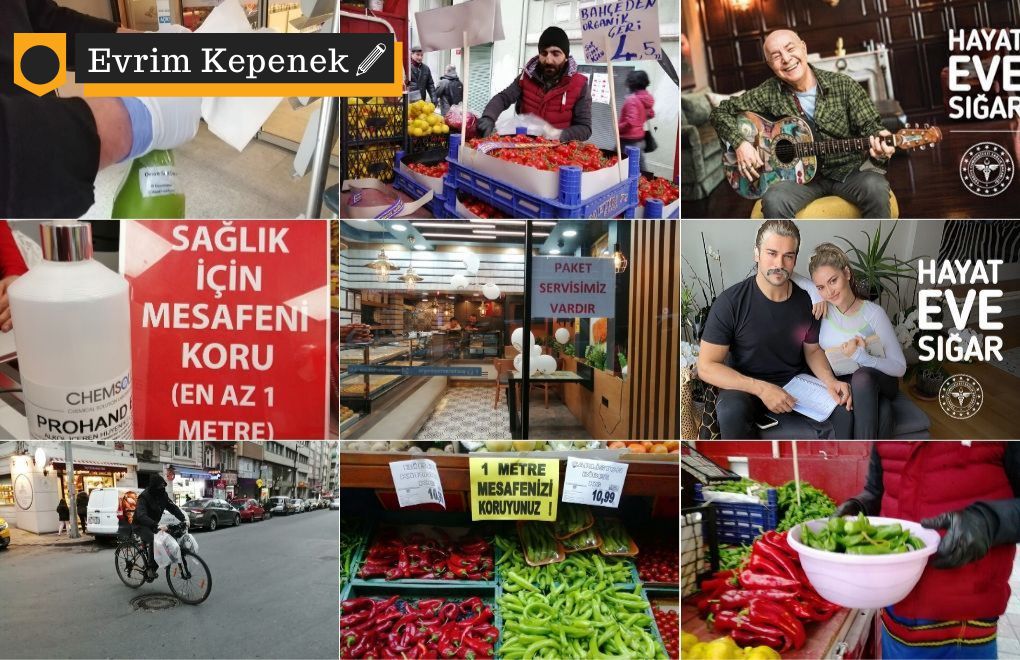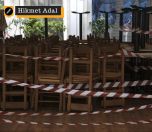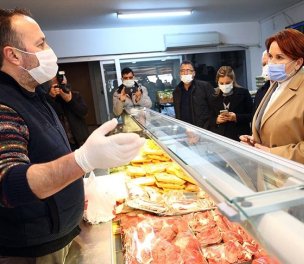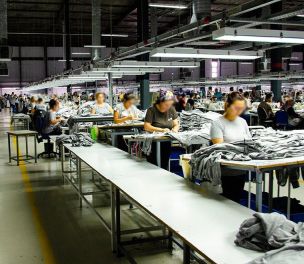Click to read the article in Turkish
One of the most effective methods in the fight against coronavirus is to prevent its spread. And this is closely related to not entering crowded places, maintaining social distance and even not going out at all.
For this reason, the Ministry of Health started an important campaign, publishing messages, "Life fits into home" and "Stay home." Actors, musicians and celebrities have also taken part in the campaign.
Authorities granted paid leave to all employees who had to leave home to work. But this was not enough. The Canal İstanbul project was abandoned in İstanbul. The budget reserved for Canal İstanbul was allocated for minimum wage earners who had to leave home to work, to the homeless and to the unemployed. Thousands of minimum wage earners and unemployed don't struggle to make a living, at least in the days of coronavirus. Not just those who earn tens of thousands of dollars from TV series, but everyone "stayed home."
I would love to say these. But numbers tell us the exact opposite.
Grocery store employees, taxi drivers, bus drivers, cargo workers, motorcycle couriers, buffet workers... Tens of thousands of people who have to fit their lives not into the home but to work are on the streets every day.
According to the Turkish Statistical Institution (TurkStat), the number of people in employment is 28.5 million. Among those, 19.3 million are paid employees. This morning, 4.5 million people in İstanbul had to leave home for work.
Those who have to leave home to work
One of them is Ali, who works at one of the grocery chains with thousands of stores.
"They didn't grant us leave, as a result, I have to come to work. Other companies gave protective masks, gloves to their employees. We were also told that it will be given to us. But it didn't come. We are waiting," he says.
I guess one of the "other companies" Ali mentions is a near grocery store, which is better known and has relatively more "elite" customers.
Disinfection begins in front of this store. First, shopping baskets are wiped and disinfectant is poured on customers' hands. The employees want to protect the company they work for more than themselves. "We can't talk. Measures have been taken. We will work until the curfew comes. What can we do?" says one of them.
Another one of those who can't fit their lives into the home is a börek [a type of filled pastry] shop in the Kurtuluş district. They turned chairs upside down and put them on the tables as only take away services are allowed. The owner of the shop sits together with his three employees.
"We are waiting in the empty shop. Customers order by phone or receive their orders and go. Nobody sits here. But we have to wait in the shop. We are here because a curfew has not been imposed. The situation was already not good, we have now collapsed economically. The state doesn't support us," one of them says.
Those who don't have to go out
Those who have rental income, capital owners, holding bosses, celebrities calling to "stay home"...
Actors who earn at least 50 minimum wages per episode can fit their lives into the home even if TV series are suspended. But how will TV workers, who get the lowest share of the cake, make a living after TV series are suspended?
Among those who don't have to work to earn a living are those who live with rental income. According to the TurkStat, 6.7 million households pay rent. Many people are thought to have rental income from more than one house.
According to Credit Suisse's Global Wealth Report, the richest 10 percent in Turkey have 81.2 percent of the total wealth.
While some call for staying home in the country, some cannot stay home even if they want to.
Construction workers want paid leave
There are 1.2 million construction workers in Turkey, according to the Construction Workers' Union. They are among those who cannot isolate themselves. A video message from the union on Twitter clearly explains the situation: "Our fellow workers anxiously stay at the construction site and wards and they are very worried about being in common areas they use during the day."
While lots of workers left their jobs and returned to their hometowns, many still work, a union worker at Emaar company. (EMK/VK)








sknsd.jpg)





sa.jpg)





